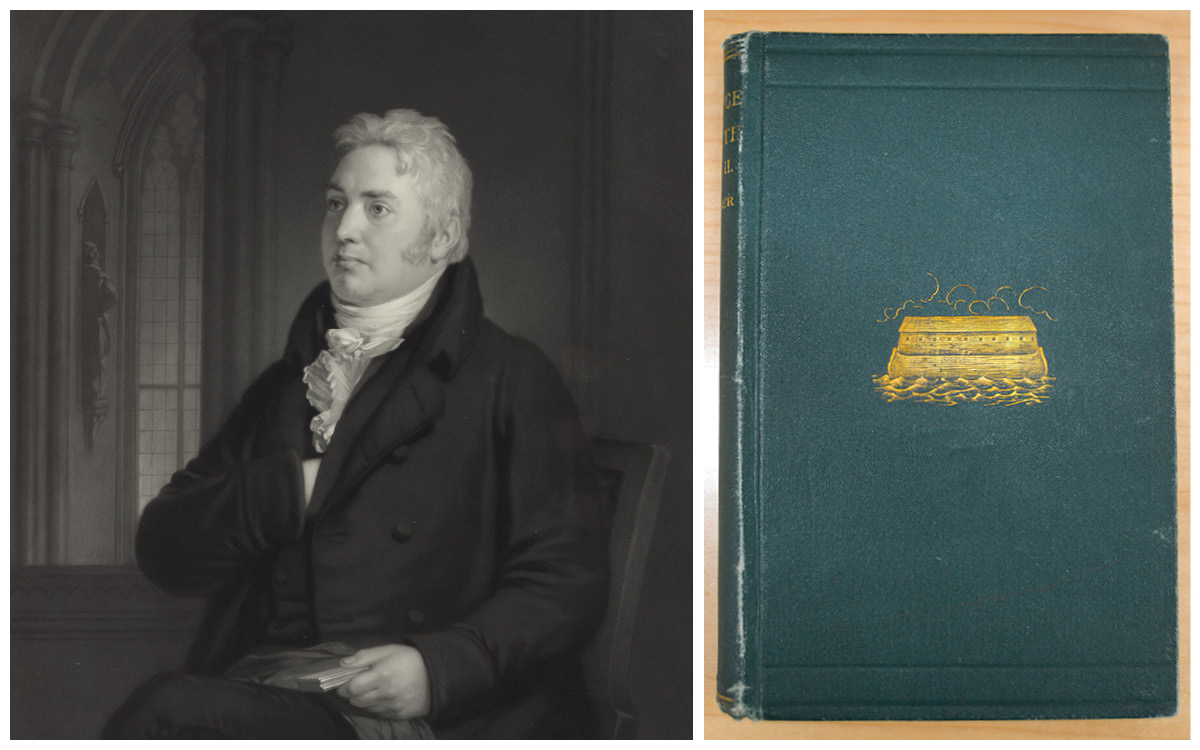Did Mary Baker Eddy say it? “I, I, I, I itself, I”

Samuel Taylor Coleridge at age 42. Courtesy of Library of Congress, Prints & Photographs Division, LC-DIG-pga-00553. Science and Health, second edition, 1878.
We are sometimes asked about a statement attributed to Mary Baker Eddy. It begins “I, I, I, I, itself, I….”
These words are the beginning of a poem that first appeared in the second edition of Eddy’s book Science and Health, published in 1878:
I, I, I, I itself, I,
The inside and outside, the what and the why,
The when and the where, the low and the high,
All I, I, I, I itself, I.1
Eddy is not the author of the poem. This stanza has been traced to Biographia Literaria (c. 1818) by Samuel Taylor Coleridge.
Coleridge (1772–1834) was an English poet and literary critic who pioneered the Romantic movement, with his collaborator William Wordsworth. By the 1810s Coleridge had experienced a Christian rebirth, and much of his poetry from this period includes a strong metaphysical tone. He largely renounced his career as a poet and is considered by historians to have had great influence over the development of the field of literary criticism.
Coleridge’s Biographia Literaria is a nontraditional autobiography, in which he writes of various philosophical schools, including Kant and Fichte. In fact, it’s only partially autobiographical; it is mostly a loosely structured intellectual and philosophical discourse highlighting his critical agenda.2
Eddy’s quotation of the poem in that early edition of her book is not a direct match to the text from Coleridge:
… Here on this market-cross aloud I cry:
I, I, I! I itself I!
The form and the substance, the what and the why,
The when and the where, and the low and the high,
The inside and outside, the earth and the sky,
I, you and he, and he, you and I,
All souls and all bodies are I itself I!
All I itself I!
(Fools! a truce with this starting!)
All my I! all my I!….
The full text of this poem may be found in Biographia Literaria.3
However, it also appears that Eddy was unaware of the original source of this poem. The author was first identified as “Anonymous” in the 16th edition of Science and Health, published in 1886. The poem appeared in Science and Health until 1908, when Eddy removed it in the book’s fifth printing that year. She did not leave an explanation for her decision. In the current edition, this page includes a Bible quote, a quote from Shakespeare’s Hamlet and “Come Thou,” a poem by Eddy:
Ye shall know the truth, and the truth shall make you free.
JOHN viii. 32
There is nothing either good or bad, but thinking makes it so.
SHAKESPEARE
OH! Thou hast heard my prayer;
And I am blest!
This is Thy high behest: —
Thou here, and everywhere.
MARY BAKER G. EDDY4
- Mary Baker Glover Eddy, Science and Health, 2nd edition (Lynn, Massachusetts: Dr. Asa G. Eddy, 1878). The poem is found on an unnumbered page in the front matter.
- See “Samuel Taylor Coleridge,” Poetry Foundation, 2 October 2023, https://www.poetryfoundation.org/poets/samuel-taylor-coleridge; “Coleridge, Samuel Taylor,” The Oxford Companion to English Literature (Oxford, New York: Oxford University Press, 1998), 99.
- See a transcript in Samuel Taylor Coleridge, Biographia Literaria (London: Rest Fenner, 1817), http://www.gutenberg.org/etext/6081
- Mary Baker Eddy, Science and Health with Key to the Scriptures (Boston: The Christian Science Board of Directors), iii.

